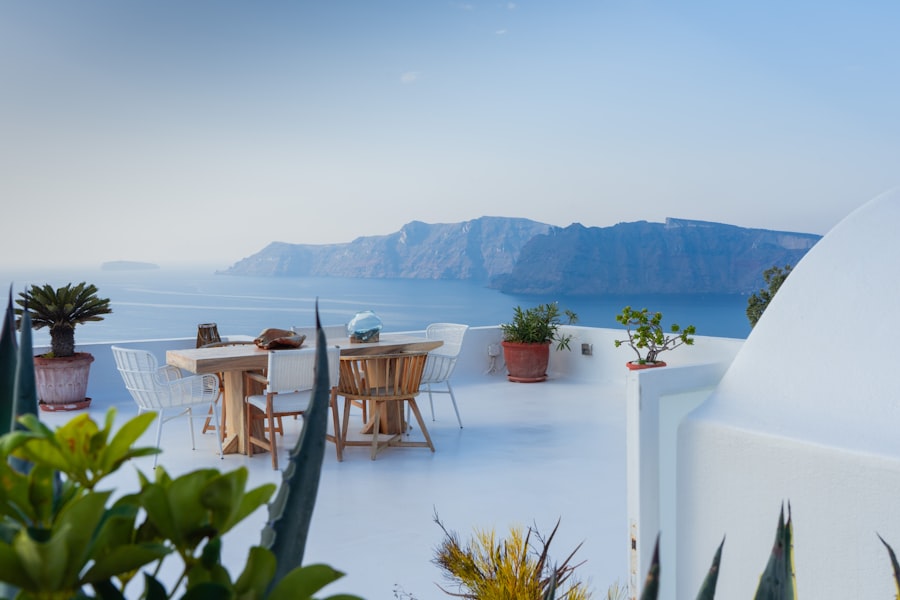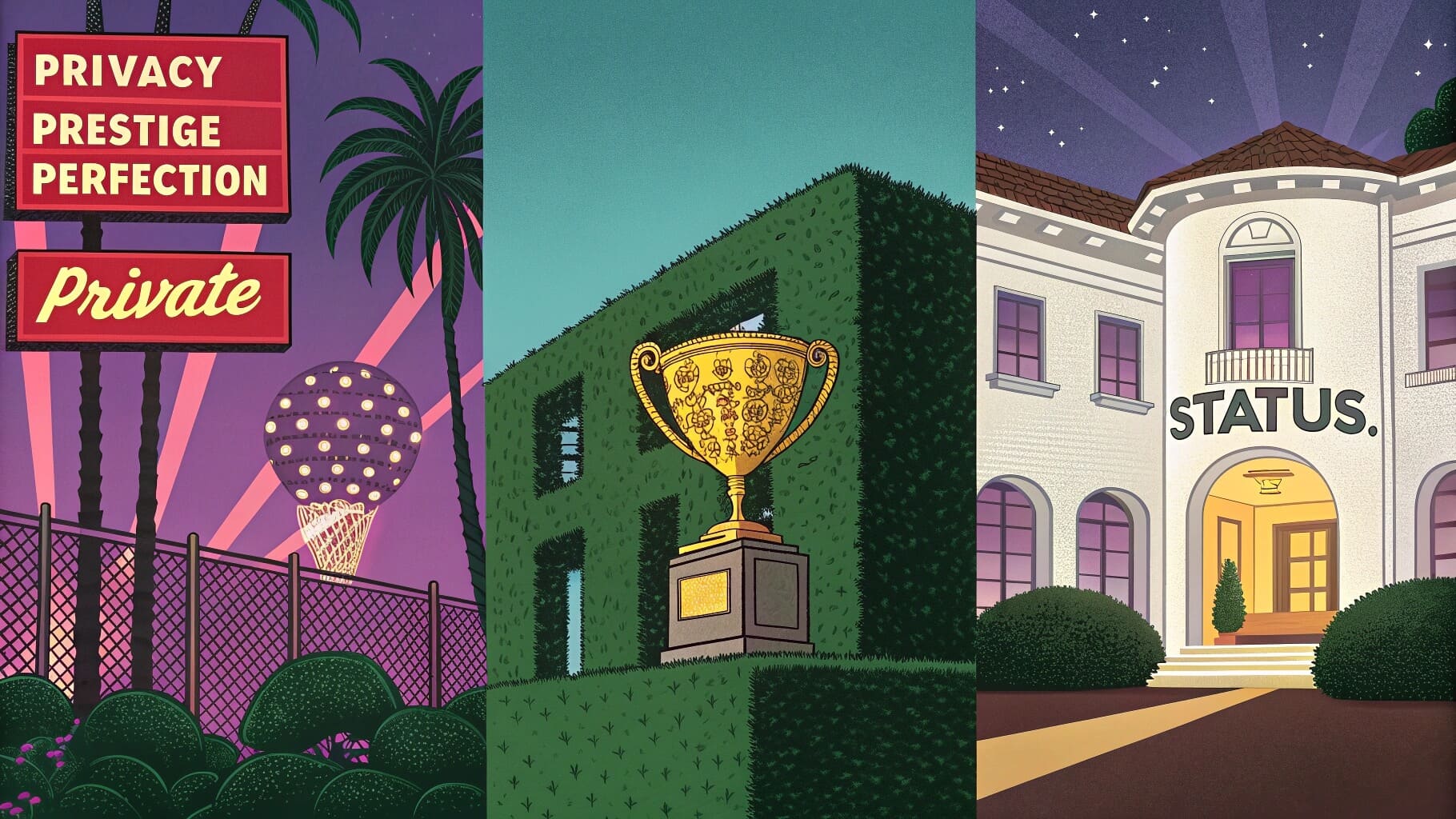In an age where digital footprints are omnipresent and personal information is often just a click away, the allure of privacy has never been more pronounced. The relentless pace of modern life, characterized by social media updates, instant messaging, and a barrage of notifications, has created a paradox: while we are more connected than ever, we often find ourselves yearning for solitude and seclusion. This desire for privacy is not merely a reaction to the overwhelming nature of constant connectivity; it is a fundamental human need that has been amplified by the digital age.
The notion of retreating into a private space, away from the prying eyes of the world, resonates deeply with many individuals who seek to reclaim their personal sanctuaries. Mansions, with their sprawling grounds and secluded locations, offer an ideal solution to this quest for privacy.
These grand residences often feature extensive landscaping, high walls, and gated entrances that create a physical barrier between the inhabitants and the outside world.
This architectural design not only provides a sense of security but also fosters an environment where individuals can engage in introspection and relaxation without the distractions of modern life. The allure of privacy in such settings is further enhanced by the ability to host gatherings or entertain guests in an exclusive atmosphere, where the outside world feels distant and irrelevant.
Key Takeaways
- Privacy is increasingly sought after in a world where constant connectivity blurs the lines between public and private life.
- Owning a mansion symbolizes power and prestige, reflecting a desire for status and influence in society.
- The appeal of luxury and perfection drives the desire for every aspect of life, including living spaces, to be grand and opulent.
- Expansive living spaces and grandeur are desired as a reflection of success and achievement, creating a sense of fulfillment and satisfaction.
- Mansions play a crucial role in creating a sense of exclusivity and status, elevating the social standing of their owners in the community.
The symbolic power and prestige of owning a mansion
Owning a mansion is often seen as a symbol of success and achievement, representing not just wealth but also a certain lifestyle that many aspire to attain. The grandeur associated with these properties transcends mere physical attributes; it embodies a narrative of hard work, ambition, and the realization of dreams. In many cultures, mansions are viewed as status symbols that convey power and influence.
The sheer size and opulence of these homes serve as a testament to the owner’s accomplishments, making them a focal point in social circles where prestige is paramount. Moreover, the architectural styles and historical significance of mansions contribute to their symbolic power. From neoclassical designs to modern masterpieces, each mansion tells a story that reflects the tastes and values of its owner.
This connection between architecture and identity is profound; it allows individuals to express their personal brand through their living spaces. The prestige associated with owning such properties often extends beyond the individual to their families, creating a legacy that can be passed down through generations. In this way, mansions become not just homes but also repositories of family history and cultural heritage.
The appeal of luxury and perfection in every aspect of life

Luxury is often defined by the pursuit of perfection, and this pursuit manifests itself in various aspects of life, particularly in the realm of real estate. Mansions epitomize this ideal, offering meticulously designed interiors, high-end finishes, and state-of-the-art amenities that cater to every conceivable desire. The appeal of luxury lies not only in the tangible elements—such as marble countertops or custom cabinetry—but also in the experience they provide.
Living in a mansion allows individuals to indulge in a lifestyle characterized by comfort, elegance, and sophistication. The allure of perfection extends beyond physical attributes; it encompasses the entire living experience. For instance, many modern mansions are equipped with smart home technology that allows residents to control lighting, temperature, and security systems with ease.
This level of convenience enhances daily life, allowing individuals to focus on what truly matters—whether that be family time, personal pursuits, or entertaining guests. The seamless integration of luxury into everyday living creates an environment where individuals can thrive, fostering a sense of well-being that is often sought after but rarely achieved in more modest settings.
The desire for expansive living spaces and grandeur
The desire for expansive living spaces is deeply rooted in human psychology; it reflects our innate need for comfort and freedom within our environments. Mansions cater to this desire by offering vast square footage that allows for both personal expression and communal living. The open floor plans commonly found in these homes create an inviting atmosphere where families can gather while still providing ample room for privacy when needed.
This balance between openness and seclusion is one of the key factors that make mansions so appealing. Furthermore, the grandeur associated with mansions extends beyond mere size; it encompasses architectural details that evoke awe and admiration. High ceilings adorned with intricate moldings, grand staircases that serve as focal points, and expansive windows that invite natural light all contribute to an atmosphere of opulence.
These design elements not only enhance the aesthetic appeal of the home but also create a sense of space that can be both liberating and inspiring. Living in such an environment encourages creativity and fosters a lifestyle that embraces both relaxation and celebration.
The role of mansions in creating a sense of exclusivity and status
Mansions inherently carry an air of exclusivity that sets them apart from more conventional homes. This exclusivity is often reinforced by their locations—typically situated in affluent neighborhoods or private estates—where access is limited to those who can afford such luxury. The very act of owning a mansion can create a sense of belonging within elite social circles, where shared experiences and values further enhance one’s status.
This dynamic fosters connections among like-minded individuals who appreciate the finer things in life. Moreover, the exclusivity associated with mansions often extends to their design and features. Many luxury homes are custom-built or extensively renovated to reflect the unique tastes and preferences of their owners.
This level of personalization not only enhances the living experience but also reinforces the idea that these properties are one-of-a-kind treasures. As such, owning a mansion becomes not just about having a place to live; it transforms into a statement about one’s identity and aspirations within society.
The historical significance and cultural associations of mansions

Mansions have long been associated with wealth and power throughout history, serving as symbols of social hierarchy across various cultures. In many societies, these grand residences were built by influential figures—such as aristocrats or industrialists—who sought to showcase their affluence through elaborate architecture and lavish interiors. The historical significance of mansions is evident in their design elements, which often reflect the prevailing architectural styles of their time, from Victorian elegance to Art Deco glamour.
Culturally, mansions have been depicted in literature, film, and art as representations of aspiration and desire. They often serve as backdrops for stories involving romance, intrigue, or conflict among the elite. This cultural association reinforces the idea that mansions are not merely physical structures but rather embodiments of dreams and ambitions that resonate with people across generations.
As such, they hold a unique place in our collective consciousness—a symbol of what it means to strive for greatness.
The practical advantages of owning a mansion, from security to customization
Beyond their aesthetic appeal and symbolic significance, mansions offer practical advantages that make them highly desirable for many individuals. One of the foremost benefits is security; many luxury homes are equipped with advanced security systems that include surveillance cameras, gated entrances, and even on-site security personnel. This level of protection provides peace of mind for residents who may be concerned about safety in an increasingly unpredictable world.
Customization is another significant advantage associated with owning a mansion.
Unlike standard homes that may come with limitations on design choices or renovations, mansions often allow for extensive personalization tailored to the owner’s preferences.
From choosing floor plans to selecting finishes and fixtures, homeowners have the opportunity to create spaces that reflect their unique tastes and lifestyles.
This level of customization not only enhances comfort but also adds value to the property over time.
The psychological and emotional benefits of living in a mansion
Living in a mansion can have profound psychological and emotional benefits that extend beyond material wealth. The spaciousness and grandeur associated with these homes can foster feelings of well-being and contentment. Studies have shown that our environments significantly impact our mental health; thus, residing in an aesthetically pleasing space can lead to increased happiness and reduced stress levels.
The ability to retreat into a luxurious environment after a long day can provide solace and rejuvenation. Additionally, mansions often serve as venues for social gatherings and celebrations, creating opportunities for connection with family and friends. These interactions can enhance feelings of belonging and community—essential components for emotional well-being.
The act of hosting events in an elegant setting can also boost self-esteem and reinforce social status among peers. Ultimately, living in a mansion can contribute positively to one’s overall quality of life by providing not just physical comfort but also emotional fulfillment through meaningful experiences shared within its walls.
If you are interested in exploring ways to increase your income while maintaining a luxurious lifestyle, you may want to check out this article on 12 Side Hustles for Working Moms in 2025. This article provides valuable tips and ideas for working moms looking to make extra money on the side. By diversifying your income streams, you can afford the privacy, prestige, and perfection that come with owning a mansion.
FAQs
What are the main reasons why people choose mansions?
The main reasons why people choose mansions are privacy, prestige, and the desire for a luxurious and perfect living environment.
Why do people value privacy when choosing a mansion?
Privacy is highly valued when choosing a mansion because it allows individuals and families to live in seclusion and away from the public eye. Mansions often offer large, gated properties that provide a sense of security and exclusivity.
How does owning a mansion contribute to prestige?
Owning a mansion contributes to prestige as it is often associated with wealth, success, and social status. Mansions are seen as symbols of affluence and can elevate an individual’s or family’s social standing in the community.
What role does the pursuit of perfection play in the decision to choose a mansion?
The pursuit of perfection plays a significant role in the decision to choose a mansion as individuals seek to create an ideal living environment that reflects their personal tastes and aspirations. Mansions often offer luxurious amenities, high-end finishes, and custom features that cater to the desire for perfection.

